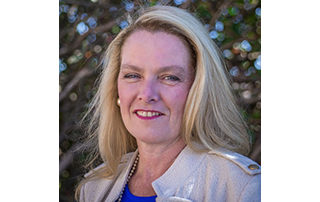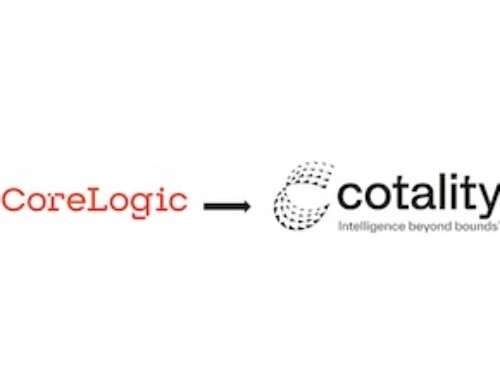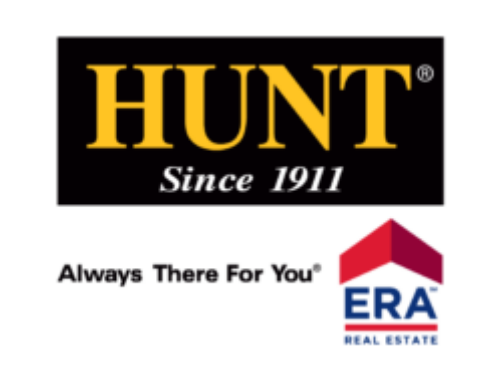Today, WAV Group issued a press release to share the results of its WAV Group Clear Cooperation Study to gain directional insights into the feelings of brokers and MLSs regarding the Clear Cooperation Policy incorporated into the model rules by the National Association of REALTORS®. The Clear Cooperation is currently under investigation by the United States Department of Justice and the industry is divided around keeping the policy as stated, removing the policy, or finding a middle ground on the policy that satisfies the concerns of the DOJ. Be sure to reach out to the MLS Technology and Emerging Issues Advisory Board with a letter expressing your feelings about this policy. I know that may small MLSs and Brokers feel like they do not have a voice – that is not true – use your voice.
Please find the press release with the top-line results below. If you would like to learn more about the results of the study, after the MLS Technology and Emerging Issues Advisory Board meeting held this week on September 12th and 13th, please click here to register to our newsletter.
Press Release Follows

Support of Current Clear Cooperation Policy Waning According to new WAV Group Clear Cooperation Study
Real Estate Broker and MLS responses lean toward removal or revision of the Clear Cooperation Policy
SAN LUIS OBISPO, Calif. – Sept. 10, 2024 – The Clear Cooperation Policy is an NAR-mandated policy that governs the public marketing of properties, requiring listings to be entered into the MLS within one (1) business day of marketing a property to the public. The United States Department of Justice (DOJ) has expressed concerns to the National Association of REALTORS® (NAR) that the policy may be anti-competitive, and currently has an active investigation against Clear Cooperation.
The National Association of REALTORS® and several industry leaders disagree with the DOJ, arguing the policy of required contribution of listings into the MLS by all participating real estate brokers shortly after a listing is publicly marketed creates an open and transparent marketplace that assures access to for sale properties by everyone.
In addition to DOJ scrutiny, the Clear Cooperation policy is at the center of a non-commission based lawsuit that alleges defendants NAR and the San Francisco Association of REALTORS specifically blacklisted Top Agent Network, and used the Clear Cooperation policy to monopolize real estate listing services in violation of antitrust statutes. A trial date in November of 2025 has been set for this suit.
The National Association of REALTORS® MLS Technology and Emerging Issues Advisory Board (Advisory Board), composed of real estate leaders from the MLS and real estate brokerage community, will be meeting this week on September 12th & 13th, 2024 to discuss the future path for the Clear Cooperation policy amongst other topics.
To help ensure a thoughtful and timely discussion about Clear Cooperation at the upcoming Advisory Board meetings, WAV Group fielded its Clear Cooperation Study designed to get a read on current brokerage and MLS leadership’s sentiments on the policy. The study gauged interest in keeping the policy as is, making it optional, reworking it, or removing it.
 “The National Association of REALTORS Clear Cooperation Policy was one of the most debated and considered MLS policies in recent years,” says Marilyn Wilson, Founder and CEO of WAV Group. ”It involved countless hours of discussions by NAR staff, legal, broker meetings, MLS meetings, Association meetings, agent feedback, and significant research.” Proponents of the policy believed it would increase consumer transparency. Regardless of effort or intention, the DOJ is pushing back against the policy, alleging the policy is anti-competitive.
“The National Association of REALTORS Clear Cooperation Policy was one of the most debated and considered MLS policies in recent years,” says Marilyn Wilson, Founder and CEO of WAV Group. ”It involved countless hours of discussions by NAR staff, legal, broker meetings, MLS meetings, Association meetings, agent feedback, and significant research.” Proponents of the policy believed it would increase consumer transparency. Regardless of effort or intention, the DOJ is pushing back against the policy, alleging the policy is anti-competitive.
The WAV Group Clear Cooperation Study, while registering solid support for removal of the policy, especially among brokers, also demonstrated strong interest in making the policy optional or re-working it. Overall, just 28% of respondents, however, recommended keeping the policy as-is. The majority want to change or remove the policy.
Interest in removing the policy completely or making it optional and reworking it differed between MLSs and Brokerages. Fifty-one percent (51%) of brokerage respondents recommended removing the policy. Forty percent (40%) of MLS respondents suggested making the policy optional and/or reworking the policy, the predominant answer for MLS leaders and staff.
Interestingly, larger brokerages with an average of 3,114 agents were more in favor of removing the policy than smaller brokerages who were more interested in making it optional or reworking it.
There is an active investigation by the DOJ into the Clear Cooperation policy that could bring NAR, as well as its MLSs and brokerages, back into future litigation. The National Association of REALTORS® has appealed to the U.S. Supreme Court to block the DOJ investigation into Clear Cooperation.
The Clear Cooperation Policy was a pressing issue discussed at the annual RISMedia CEO & Leadership Exchange last week in Washington D.C. In an interview with John Featherston, Founder and CEO of RISMedia and Compass CEO Robert Reffkin, Reffkin was emphatic that the rule should be removed as a required policy by NAR. He seemed to favor local MLS rulemaking, stating, “As a mandatory NAR rule, Clear Cooperation poses too much legal and financial risk for the industry. NAR should remove this rule using the same ‘emergency measures’ it used last spring to agree to settlement terms without a full board vote, and allow for local decision making at each MLS.” Reffkin added, “This will allow each MLS to choose for themselves what parts of Clear Cooperation they would like to keep.” Reffkin also noted that Clear Cooperation has been the subject of two DOJ investigations; one that is still active, and three private lawsuits.
Conversely, in a separate interview by Featherston, eXp Realty CEO Leo Pareja recommended keeping the policy in place.
Brokers interested in removing the policy were most concerned about getting named in another round of litigation. Brokers are also concerned that the Clear Cooperation Policy does not allow adequate time to make repairs, stage the home, order photos, virtual tours, or signs ahead of posting to the MLS – so the consumer’s first impression (new listing alerts) are encumbered by less than quality listing marketing. In some cases, agents hold off signing a listing agreement until they have worked with a client for several months readying the property.
Still, others believe the policy interferes with the seller/broker agreement, which should have the freedom to market the property as they see fit.
And fourth, some brokers believe it interferes with the unique marketing approach they have built with their company that helps differentiate them from their brokerage competition. They do not believe it is the purview of the MLS to limit their marketing approach.
MLS respondents interested in making it optional or reworking the policy delivered some interesting perspectives as well. Some expressed a continued belief in delivering as much consumer transparency as possible, but believed the policy needs to be reworked.
Several MLS respondents interested in reworking the policy made the following points: The Policy is burdensome and difficult for MLSs to enforce. Forcing someone to use your product or service or face a hefty fine does not convey confidence in the value of what you are offering. MLSs offer a valuable service and should not have to force behaviors. The marketing value of exposing a listing to millions of consumers and fellow practitioners nationwide provides a strong incentive to participate. Instead of forcing behaviors, MLSs would like to find ways to encourage brokers to submit their inventory rather than levying fines if they don’t. Both MLS and broker respondents stated that forced behaviors open the industry to further legal risk.
Other MLS respondents expressed support for the policy, but want to see a way for the policy to not directly interfere with other property listing aggregators. Again, they believe the MLS organization is strong enough that it can compete on the merits of the data quality, business generation technologies, digital marketing, training, and customer support they provide very affordably.
Both MLSs and Brokerages expressed a continued commitment to serve the best interests of home buyers and sellers by maximizing listing exposure and nationwide distribution on a variety of platforms. They asked for a requirement for consumers to clearly understand and agree to methods that expose their listing to a subset of participants whether through the MLS organization or in other ways. They recommended a consumer should sign a disclosure written in plain English to ensure they fully understand the marketing approach being recommended to them and the potential downsides of not exposing a listing to the entire universe of potential customers.
If you would like to learn more about the results of the WAV Group Clear Cooperation Study, please click here to register for our newsletter mailing list.
About WAV Group
WAV Group is the residential real estate industry’s preeminent strategy, research, consulting, and communications firm, helping to generate significant success for many of the industry’s largest and most successful small businesses, including real estate brokerages, technology companies, and local, state and national real estate associations and multiple listing services. The firm’s diverse industry experience allows it to cross-fertilize ideas and bring best-of-breed thought leadership and proven solutions to its clients. More information is available at www.wavgroup.com.





So let me see, signing up a new listing today and adding it to my local multiplt listing service which then distributes the listing information to the various real estate portals is non competitive?
Having a local broker call me for an appointment to show his buyers the property minuites after the listing hit the multiple listing hot sheets is non-competetive?
Having a buyer see the property on one of the hundreds of real estate websites, contact either their buyer rep. or maybe me directly is non-competetive?
Having the best offer for the seller on the listed properrty come from a company other than the listing company is non-competetive?
I understand having a company of thousands of agents requires the broker to keep as much stuff in-house in order to feed his agents is an issue. But isn;t that non-competitive?
Just thinking on paper.